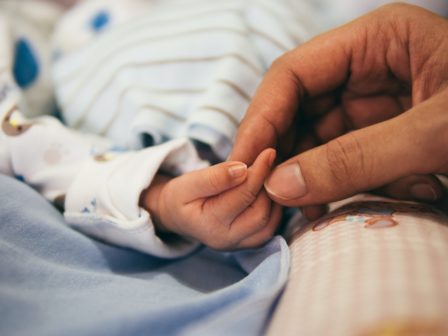Postpartum depression
laura on 06/01/2023

Photo by Aditya Romansa on Unsplash
Parenthood tends to be talked about in glowingly positive terms. It is described as a beautiful, natural part of life that is all sweetness and light. In this glowing description of parenthood, it is important to remember that having a baby is a big change in life and adapting to this change can be difficult. Having sad or difficult emotions during adapting to a new life does not make you a bad parent! You are not alone. Having a baby is a profoundly powerful experience, and intense experiences tend to create big emotional responses.
How are baby blues different to postpartum depression?
Postpartum Depression is not the same as the typical ‘baby blues’ that occur around day 4 post birth. Generally, the baby blues are due to the hormonal changes going on in your body after giving birth, but it does not tend to last more than a few days.
“Baby blues” may make you feel irritable, moody, weepy, restless, or unable to sleep – or all of the above. These feelings often tend to pass as you gain confidence and get into some routines. In postnatal depression, symptoms last longer than 2 weeks, may be more severe and often interfere with your ability to function normally. Unlike ‘baby blues’, postnatal depression doesn’t usually go away on its own. This can be especially tough to cope with when you are recovering from birth and have a new baby to look after.
Signs of postnatal depression
Postnatal depression, also known as postpartum depression, is a type of mood disorder associated with childbirth. There is no single cause of postnatal depression, but physical and emotional issues may play a role. Physical issues include hormonal changes after childbirth and sleep deprivation; while emotional issues include feeling overwhelmed/anxious and having money, work or relationship problems.
Some common symptoms of postnatal depression include:
- Losing interest or lack of interest in your baby
- Fatigue (a feeling of heaviness)
- Hopelessness and sadness
- Feeling overwhelmed
- Sometimes extreme thoughts such as that of suicide or self-harm or harming your baby (if you are experiencing any of these symptoms or know of someone that might be, please seek help from a medical professional ASAP)
Who can I talk to for advice and support?
- Talk to your partner, or someone else you trust.
- Ask your GP, midwife or child healthcare nurse for advice.
- Call one of these support services:
- PANDA (Perinatal Anxiety & Depression Australia) — 1300 726 306
- ForWhen — 1300 24 23 22 (Monday to Friday, 9.00am to 4.30pm)
- Gidget Foundation — online and telehealth support — 1300 851 758
- Beyond Blue — 1300 22 4636
If you are going through difficulties and need to find your inner strength, why not give us a call today? Our team of highly skilled and well-experienced Psychologists are here to help.
This blog was written by Aanchal Sood – Psychologist at YMM.
Aanchal completed studies in psychopharmacology and psychology in England, and is fluent in both Hindi and Punjabi.
Aanchal has experience assisting adolescents, adults and couples to address a variety of difficulties including anxiety and mood disorders, grief and loss, trauma and stress related disorders, adjustment issues (e.g. cultural adjustment), sleep difficulties, relationship difficulties, schizophrenia spectrum and other psychotic disorders, obsessive compulsive and related disorders.
To learn more about Aanchal, check out the “Our Team” page on our website! https://yourmindmatters.net.au/our-team/
- Category: Child development and parenting, Mood disorders
